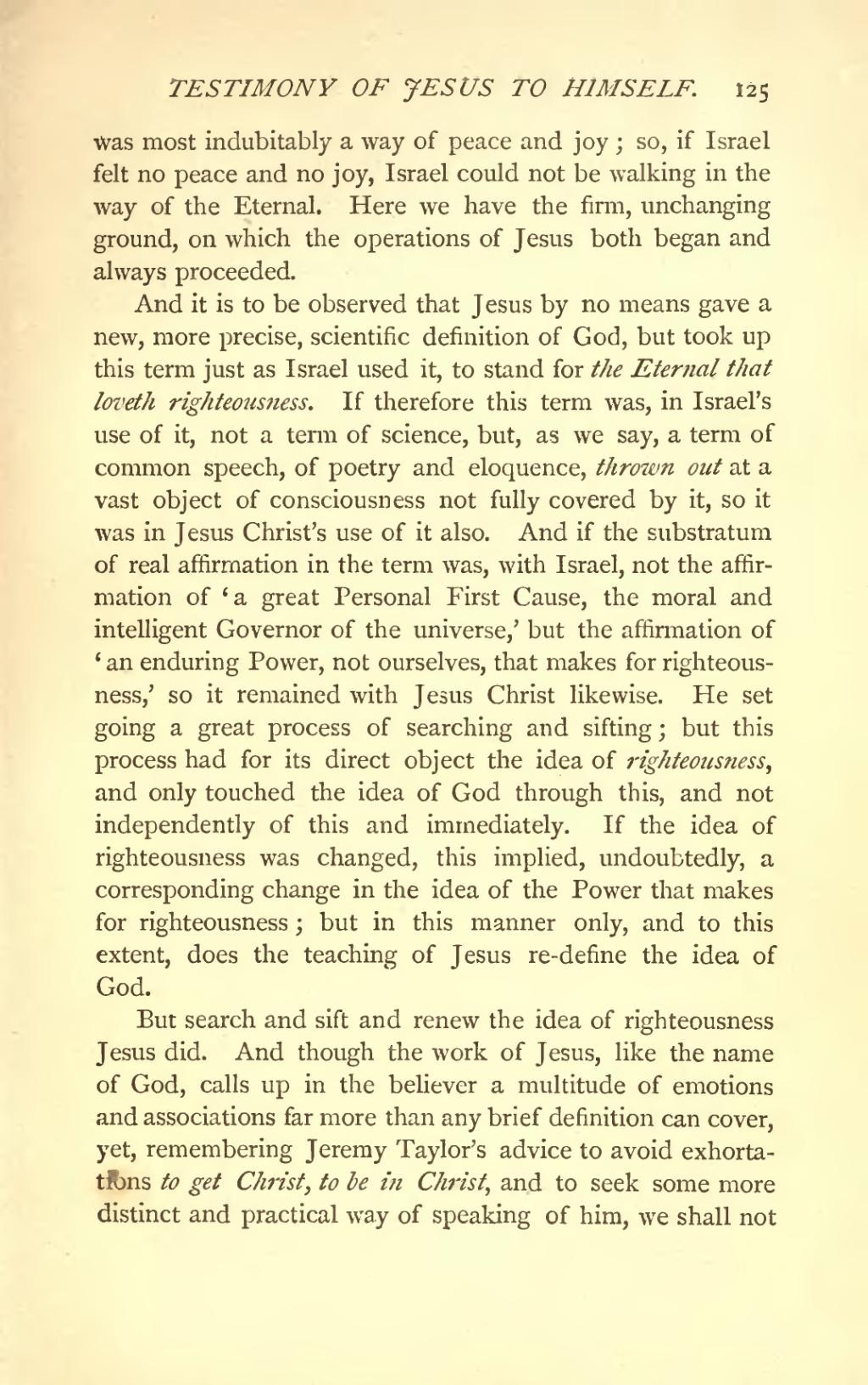was most indubitably a way of peace and joy; so, if Israel felt no peace and no joy, Israel could not be walking in the way of the Eternal. Here we have the firm, unchanging ground, on which the operations of Jesus both began and always proceeded.
And it is to be observed that Jesus by no means gave a new, more precise, scientific definition of God, but took up this term just as Israel used it, to stand for the Eternal that loveth righteousness. If therefore this term was, in Israel's use of it, not a term of science, but, as we say, a term of common speech, of poetry and eloquence, thrown out at a vast object of consciousness not fully covered by it, so it was in Jesus Christ's use of it also. And if the substratum of real affirmation in the term was, with Israel, not the affirmation of 'a great Personal First Cause, the moral and intelligent Governor of the universe,' but the affirmation of 'an enduring Power, not ourselves, that makes for righteousness,' so it remained with Jesus Christ likewise. He set going a great process of searching and sifting; but this process had for its direct object the idea of righteousness, and only touched the idea of God through this, and not independently of this and immediately. If the idea of righteousness was changed, this implied, undoubtedly, a corresponding change in the idea of the Power that makes for righteousness; but in this manner only, and to this extent, does the teaching of Jesus re-define the idea of God.
But search and sift and renew the idea of righteousness Jesus did. And though the work of Jesus, like the name of God, calls up in the believer a multitude of emotions and associations far more than any brief definition can cover, yet, remembering Jeremy Taylor's advice to avoid exhortations to get Christ, to be in Christ, and to seek some more distinct and practical way of speaking of him, we shall not
